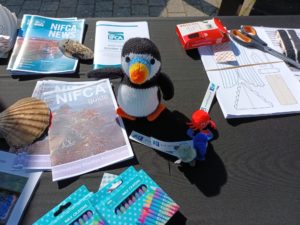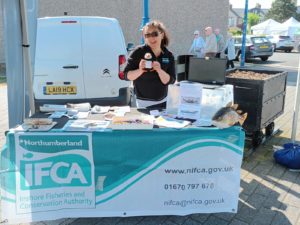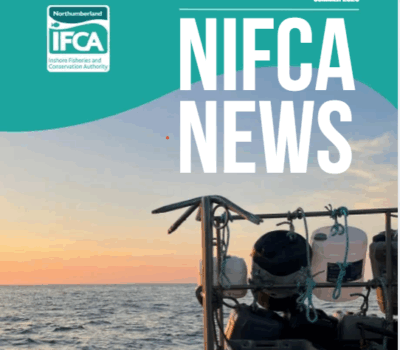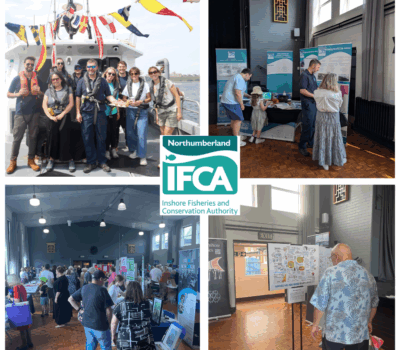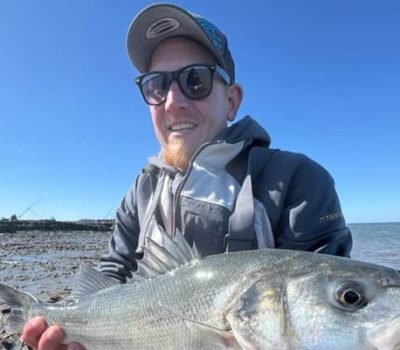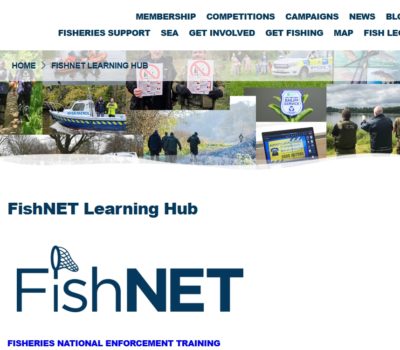NIFCA AND AMBLE PUFFIN FESTIVAL
During May, the Northumberland Inshore Fisheries and Conservation Authority (NIFCA) made its annual appearance at the Amble Puffin Festival, an event celebrating the region’s marine life.
Each year, NIFCA supports the festival to connect with the local community and share insights into our work in managing and conserving Northumberland’s inshore waters.
Our officers Vicky Rae and Richard Willis manned NIFCA’s booth, which was a hub of activity, offering interactive displays and educational materials. Visitors learned about sustainable fishing practices, habitat protection and marine biodiversity. The NIFCA team provided information on key topics including sustainable fishing practices, minimum size limits and research work undertaken as well as ways anglers can contribute to the data held on finfish by entering our species challenge competition.
Habitat protection was also a key area, covering the safeguarding of critical habitats such as seagrass beds and rocky reefs and marine species conservation.
Hands-on learning and engaging with the community
Children enjoyed fish identification games, fostering early interest in conservation. The festival also facilitated discussions between NIFCA officers and local fishers, helping to promote collaboration and mutual understanding.
NIFCA’s annual participation in the Amble Puffin Festival not only educates the public but also strengthens community ties, reinforcing the collective effort to protect Northumberland’s marine heritage.
Festival facts
The Amble Puffin Festival celebrates everything Puffin at the best time of year to see the Coquet Island puffins, as they prepare to take care of their newly hatched pufflings.
The festival takes inspiration from a colony of approximately 30,000 puffins that nest on the RSPB seabird sanctuary of Coquet Island, just a mile off Amble. Puffins are very sociable birds that like to nest in burrows in the soft sandy soil on the island, which equates to more than 15,000 burrows.
Coquet Island has been an RSPB nature reserve since 1970 and is also the sole UK nesting colony of roseate terns. The island is a Site of Special Scientific Interest and therefore protected all year round, to safeguard the fragile habitat.

